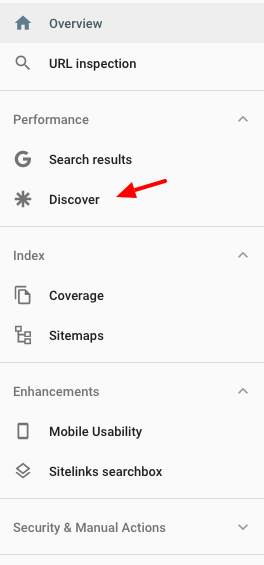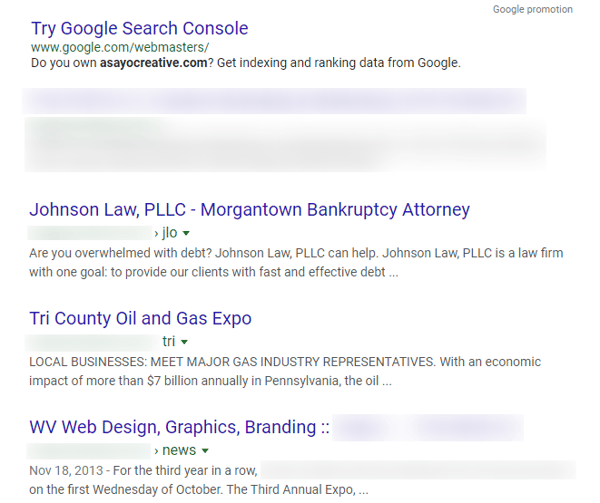Google Search Console is a treasure trove of SEO gold for successful digital marketing campaigns.
If you are being intentional about leveraging the world’s number one search engine to acquire more site traffic, there might not be a free tool more important to the success of your campaign.
“But what about Google Analytics?”
Sure, Google Analytics is important, and you’re certainly going to need to pair Analytics with Search Console for the best performance data. But Google Analytics only shows you where your visitors came from, where they started their visit, and what they did while they were on your site.
All of that information? HUGELY valuable. But you will have a tough time finding growth opportunities for your site, inside Google searches, without taking full advantage of the SEO gold included in Google Search Console.
Even though it was recently announced that most of the reports and the dashboard of “Old Search Console” have been sunset, you can be certain that Google Search Console is going to live on as a must use tool for SEOs for as long as the industry exists. Or until Google finally decides to stop giving us data, whichever comes first.
Inspired by the individual reports found in the right sidebar of “New” Google Search Console, below are some of the most valuable ways to use three important sections of Google Search Console to improve your indexing status and online visibility.
How to use the Performance Report for SEO
If you intend on leveraging Google Search Console to improve your SEO campaign, then the majority of the time you invest inside the platform should be focused in the sections listed under the Performance report. Google Search Console stores a rolling 16 months of historical data on your website here, focused on four metrics:
“But Google doesn’t give you click data? Or tell you what they show your site for in organic listings?” I hear you say.
Think again. Google doesn’t give you click data or impression data… in Google Analytics.
But they do in Search Console.
In the Performance Report, you can find some incredible opportunities to improve your visibility in Google. Here are three ways you should sort through the data you have available to make data-driven decisions that create more traffic.
- Sort the keywords tab by total impressions from highest to lowest, and pay attention to average position. Find high impression keywords with an average position higher than 9, and then optimize your pages for those phrases.
- Sort the pages tab by the highest amount of total clicks. If it makes sense for your visitors, add internal links between these pages that receive the most clicks to boost rankings for all of them while also increasing your dwell time.
- Sort the Countries tab by the highest amount of impressions. Did you find a country with a native language that isn’t your native language? Consider translating your top content in that country into the native language to grow your visibility through international SEO.
These are just three of the ways you can improve your SEO strategies using the performance report. If you are one of the lucky ones who also has “Discover” data in your performance report, you can even find topics worth doing deeper analysis to increase your chances of success in Google’s newest content sharing platform.

Unless, of course, the idea of having your content found by a reported 800 million users isn’t something that interests you.
How to use the Index Report for SEO
Google wants to find everything you’ve got on your site and process it for searchers. In the Index Report, Google will notify you if they are having trouble completing that task, and what you need to do to help them do their job better.
There are only two areas in the Index report: coverage and sitemaps.
In the Coverage section, you can diagnose issues like bad redirects and pages that can’t be found. You may need to get your developer involved to formally fix the issues you find here. But if you discover that Google is having issues accessing important pages on your website – for whatever reason – then you may want to consider cleaning things up.
If the pages Google is having trouble finding are actually pages that are not meant to be found – no problem. Over the course of about 90 days, those repeated unsuccessful visits will cause Google to remove pages with coverage issues from the index.
In the Sitemaps report, you need to make sure your main sitemap URL is provided to Google and that the status is set to “Success”. But this is just the bare minimum requirement.
Are you a media or entertainment company with sitemaps for your images, news, or videos? Submit them here.
Are you a retailer with a Magento or Shopify store, but a blog built on WordPress? Then you have multiple sitemaps. Submit both of them here to improve Google’s visibility into what you’re creating.
The data you find in the Index Report will not be as strategically valuable as what you find in the Performance Report, but it can be an important area in Search Console for making sure Google can find everything you want them to see on your site.
And if Google can’t find your pages, they can’t rank them.
How To Use Legacy Tools And Reports For SEO
“What we’re going to do right here is go back. Waaaay back. Back into time.”
Please excuse me reusing the intro to a 1997 no. 1 R&B hit from BLACKstreet as the introduction to this section.
But let’s also not forget about a time when every useful Google Search Console tool was hosted in one location. With the same design layout.
It was a simpler time. The year? 2017.
Many reports in Google Search Console have been migrated over to “new” Search Console over the last few years. As of this writing, however, there are still as many as six Legacy tools and reports that can bring value to your SEO efforts.
Here are a few ways to leverage the “oldie but goodie” Legacy tools and reports in Google Search Console to help improve your SEO campaigns.
- International Targeting: Do you have a specific region of the world that you want your website to be shown in? Do you need help troubleshooting your hreflang tagging? This is the place to take care of those settings. This is a highly underutilized platform, so if you want to make the most of it, check out this step by step guide on using international targeting in Google Search Console.
- Remove URLs: I can only imagine what you’re thinking right now. In the last section, I asked you to leverage Coverage reports to make sure Google can index everything, and now I’m telling you to remove URLs. The remove URLs tool is very helpful when you see pages in the search results you don’t want Google to showcase. You will often find links like these when you do a search for your brand name, and using the remove URLs tool is a good start to have pages taken out of the results. Just make sure you also couple this tactic with adding noindex tags to the header of pages you don’t want to Google to index. Otherwise, you may end up with search results that look like the image below.

Final thoughts
Whether you have previous experience with Google Search Console and are looking for a refresher, or if you are getting started with Google’s free site monitoring platform for the first time.
There’s no question that your SEO campaign can benefit from the information hosted within Search Console. Like any data you have available to you, though, it’s all about what you do with it that truly matters.
Three of the most important reports in Google Search Console that can give you actionable tactics are the Performance Report, the Index Report, and Legacy Reports like International Targeting and Remove URLs.
But those reports are just scratching the surface of what it is truly possible with Search Console. If you are constantly searching for your business with non-branded keyword phrases, but are left seeing results that don’t include your site, using Google Search Console for your SEO might only scratch the surface of what you need.
In addition to Google Search Console, you might need to find an SEO software platform to give you better insights. Contracting with a professional agency or experienced consultant might also be a more efficient option to truly improve your results. Discover your options on G2.
